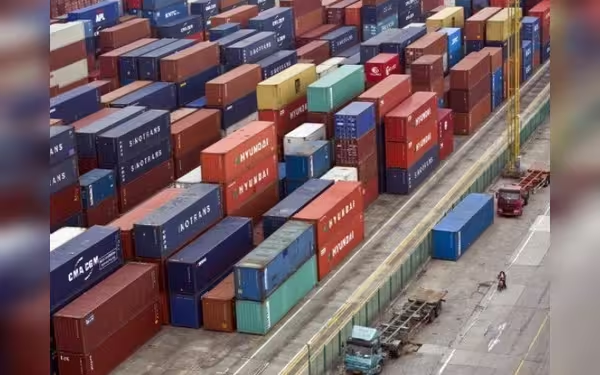Saturday, November 16, 2024 07:46 PM
Urgent Reforms Needed in Pakistan's Ports and Shipping Policies
- Karachi Port Trust raises dues by 41%, impacting shipping costs.
- Experts call for reforms to enhance port efficiency and governance.
- Improved ports can boost trade, create jobs, and stimulate growth.
 Image Credits: tribune.com.pk
Image Credits: tribune.com.pkExperts urge urgent reforms in Pakistan's ports and shipping policies to enhance efficiency and boost economic growth.
In the world of trade, shipping plays a crucial role, accounting for a staggering 70% of global commerce. For Pakistan, this presents a significant opportunity, especially with its three major ports: Karachi, Port Qasim, and Gwadar. These ports have the potential to be the backbone of the country's economy, but they are currently hindered by issues such as mismanagement, poor governance, and exorbitant port dues.
Recently, the Karachi Port Trust (KPT) made headlines by increasing port dues by 41% on July 1, 2023. This steep rise means that a ship loading clinker for export now faces costs ranging from Rs15 million to Rs30 million per voyage. Such high fees can deter shipping companies from using Pakistani ports, pushing them to seek alternatives in neighboring countries. This situation not only affects the shipping industry but also has broader implications for Pakistan's economy.
Experts are now calling for urgent reforms in the ports and shipping policies of Pakistan. They argue that without addressing these critical issues, the country risks losing its competitive edge in the global market. The current state of affairs is unsustainable, and stakeholders must come together to implement changes that will streamline operations, reduce costs, and improve governance.
Moreover, enhancing the efficiency of ports can lead to increased trade volumes, which in turn can create jobs and stimulate economic growth. It is essential for the government to recognize the importance of these reforms and take decisive action. By investing in infrastructure and adopting best practices from successful port operations around the world, Pakistan can unlock the full potential of its maritime resources.
The future of Pakistan's economy could very well depend on the reforms in its ports and shipping policies. As the global trade landscape continues to evolve, it is imperative for Pakistan to adapt and innovate. The time for change is now, and with the right strategies in place, the country can transform its ports into gateways of prosperity.













